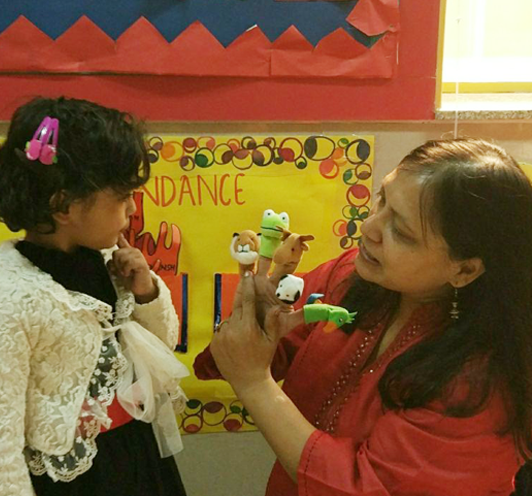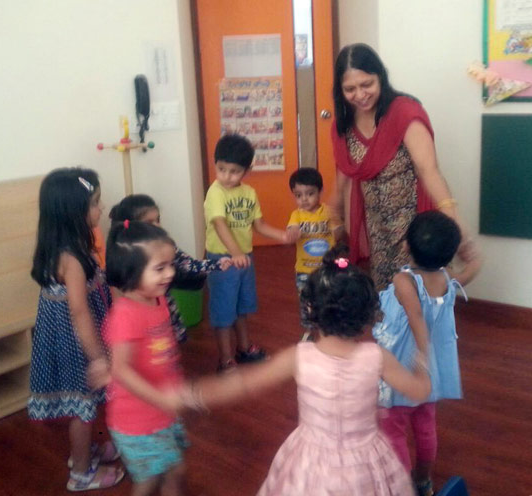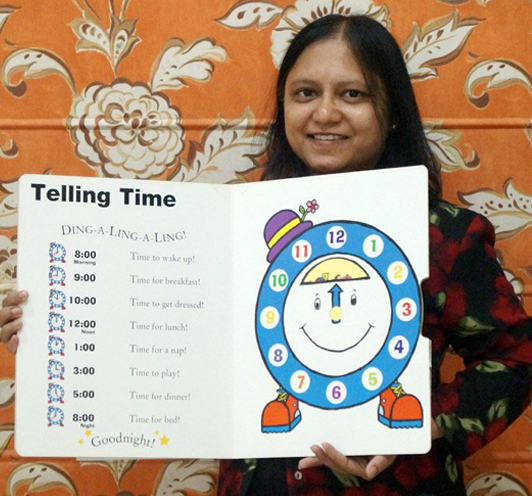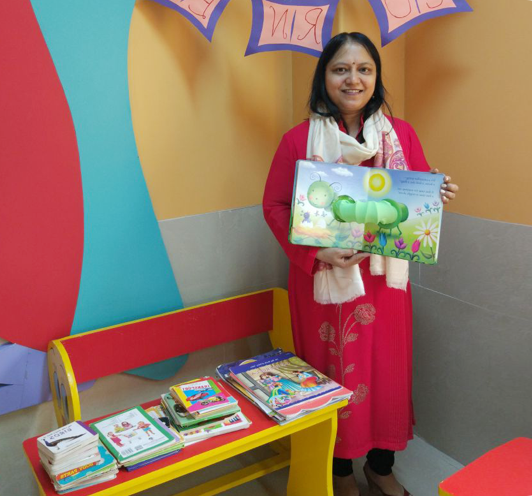Experiential learning is a philosophy and methodology in which educators purposefully engage with students in direct experience and focused reflection in order to increase knowledge, develop skills, and clarify values. Experiential learning is also referred to as learning through action, learning by doing, learning through experience, and learning through discovery and exploration. Experiential learning involves a number of steps that offer student a hands-on, collaborative and reflective learning experience which helps them to "fully learn new skills and knowledge".

Storytelling using puppets is a wonderful technique that can lead children to discover the joy of literature and learning. Puppets can be used "anyway, anywhere, and anytime" to bring stories to life and to spark young imaginations. Puppets can be made out of anything from catalogs to paper cups, and from envelopes to plastic straws. Even the simplest, hand-made puppet can be thrilling for a young child. The art of storytelling is about bringing stories to life, and puppets provide us with a great way to do just that.
Know More
Active play is one of the most important ways young children learn. Circle time is a time when students come together as a community of learners. As a community, we share our thoughts, listen to one another, actively participate together, introduce new concepts and ideas, read together, sing together, and build a sense of respect and support for one another.
Know More
When most of us encounter book as a child, we are captivated by the beautifully drawn images that made the story come to life, rather than the written text itself. Then, when we get older and read "grown-up" books, we long for the enchanting illustrations, at least at first. Picture books and their illustrations can hook children into a lifelong love of reading.
Know More
Centers work in many classrooms. It is an effective way of engaging and discpling children. Classroom centers are set keeping in mind grade level, space and our goal.
Know More